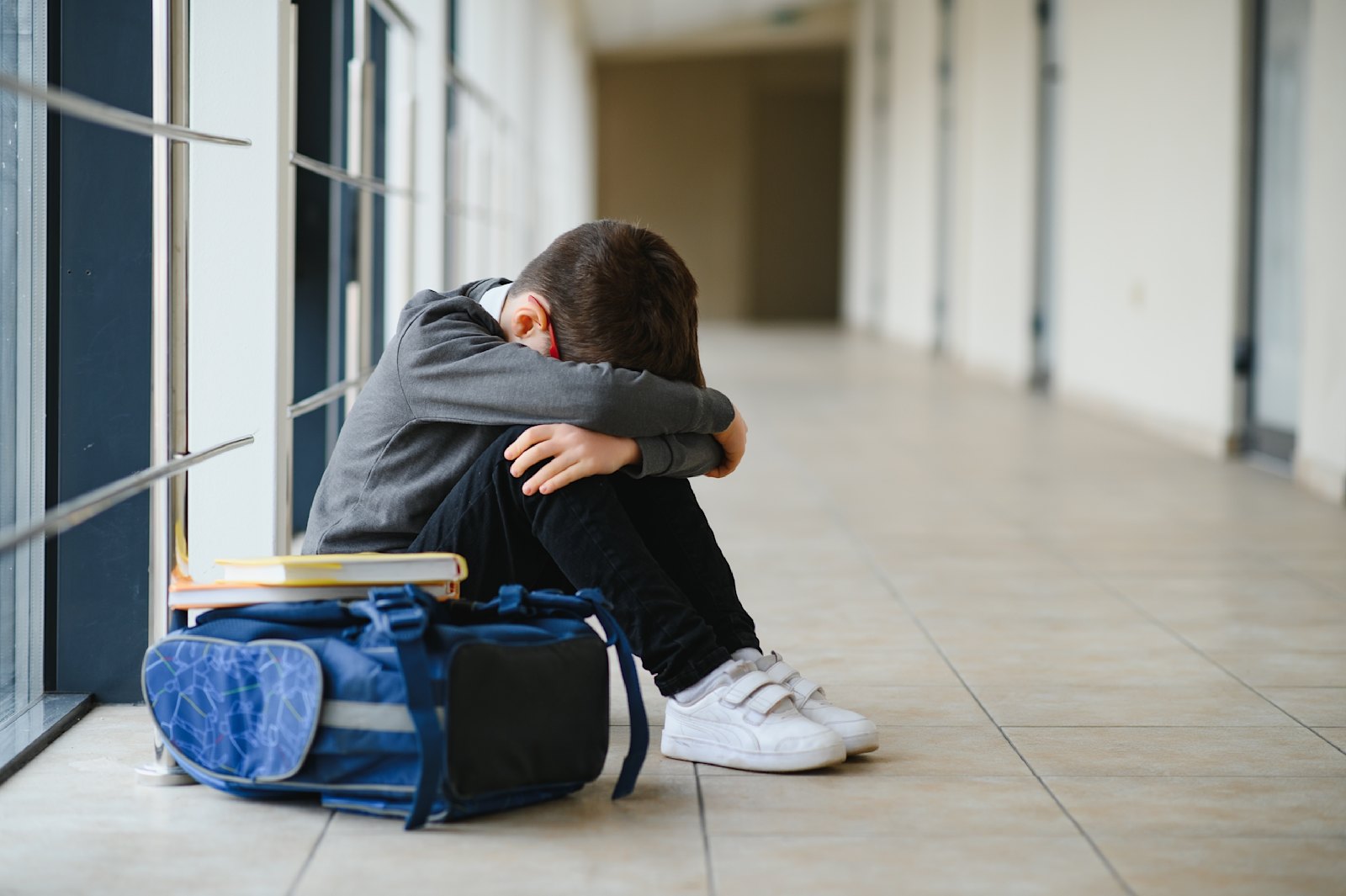School Refusal

Table of Contents
School refusal is a growing concern among Australian families, with recent data showing that 38 percent of students in years 1 to 10 were absent for more than 20 days in 2023, classifying them as “chronically absent”.
Unlike truancy, which is driven by the desire to skip school for more enjoyable activities, school refusal stems from a profound aversion to the school environment. This condition highlights the significant emotional and psychological barriers that some students face.
Understanding and addressing school refusal requires a comprehensive approach from both parents and educators. This article will delve into the three stages of school refusal, outline the signs and symptoms at each stage, and provide recommended strategies for intervention.
By recognising and addressing the unique needs of these students, we can work together to implement effective solutions that minimise anxiety and promote consistent school attendance. Our goal is to ensure that every student feels supported and valued, paving the way for a successful and fulfilling educational journey.
The Three Stages of School Refusal
Tier 1 - Anxiousness
The first stage of school refusal is characterised by a general feeling of anxiousness, which is experienced by the majority of students at some point. This nervousness about attending school or participating in specific activities is especially common during significant transitions, such as moving to a new school, starting school, or beginning high school. Similar to the anxiety adults might feel before a job interview or on the first day of a new job, this type of anxiousness is a normal part of human experience.
Tier 2 - Signs of school avoidance and lower attendance
The second stage involves more pronounced signs of school avoidance and a noticeable drop in attendance. Students at this stage start missing days of school and show higher levels of anxiety about attending. This can manifest as increasing anxiety, behavioural issues, and symptoms of depression. Students may frequently ask to be picked up early or express a strong desire to stay home. This stage indicates a shift from normal anxiousness to a more serious issue that requires attention.
Tier 3 - Significant Loss of Attendance
In the third and most severe stage, students begin to miss significant portions of their schooling. This stage is marked by chronic absenteeism and disruptive behaviour in school, driven by their refusal to attend. At this point, students are at risk of falling below the legal attendance requirements, which can have serious implications for their education and future. Addressing this stage often requires comprehensive interventions to support the student and ensure they can return to regular attendance.
What to do if my child shows signs of school refusal?
Regardless of which category your child falls into, it is crucial to listen and support them effectively to prevent the situation from escalating. Here are some steps parents can implement:
Communication
Listening to your child’s concerns about school is vital. Whether they express nervousness or discuss specific incidents, validating their feelings can help strengthen your relationship and uncover the core issue. Identifying whether the problem is related to a particular person, teacher, task, or broader social aspects is essential. It's also important to rule out the possibility of bullying, which may be affecting your child's well-being.
Whether your child is new or has been attending the school for a while, the school staff should be informed about any anxiety they are experiencing. Depending on the severity, schools can assist in making transitions smoother for new students and address any issues promptly. Additionally, being open about changes at home, such as moving, parental separation, or family tragedies, can help the school understand and accommodate any resulting changes in behaviour. Over-communication with the school is welcomed to ensure each child receives the care they need.
Make Staying at Home Boring
When children exhibit signs of school refusal, they may start reporting unexplained symptoms like headaches or stomach aches. While anxiety can manifest physically, these symptoms might also be a way to avoid going to school.
To counter this, make home life less appealing and as school-like as possible. Clearly state that if the child or teen does not attend school, all screens will be collected, and the home Wi-Fi will be turned off. Following through on this rule and providing missed homework as work to do during the day can eliminate the comfort of “fun times” at home, making school attendance more attractive.
Routine
Maintaining a consistent routine is crucial, especially if students have been away from school due to illness, family holidays, or other reasons. Strong communication with the school and teachers is essential to ensure homework hasn't accumulated, which could affect the student's academic performance upon return.
Establishing a solid routine can help students transition back to their regular school schedule. Ensure they continue to follow the same bedtime as school nights in the days leading up to their return. This helps them get adequate sleep and maintain consistent energy levels, preparing them for their first day back at school.
By implementing these strategies, parents can effectively support their children and mitigate the impact of school refusal, ensuring a smoother and more positive school experience.
ACC’s Response & Support
What action will the school take if my child refuses to go to school?
Each school may have different responses to school refusal, especially when comparing public and private institutions. The strategies outlined below are implemented by Australian Christian College (ACC) schools and are common among other private schools.
Tier 1
Buddy System
Often associated with students starting school for the first time, the buddy system is crucial for any new student, regardless of their year level. Having a familiar peer to show them around and introduce them to classmates can make a significant difference. At ACC schools, two students are typically assigned to meet and support the new student, helping them feel welcome and connected.
Principal’s Tours
Before enrolling in a new school, attending a principal's tour is usually a requirement at many private schools. Bringing the prospective student along can help familiarise themselves with the school grounds, ask questions, and get a glimpse of the classroom environment. This experience can help alleviate nerves and foster a sense of comfort.
Transition Days
Transition days, especially for Kindergarten/Prep and Year 7 students, are designed to ease students into their new school environment. These can take the form of orientation days, allowing students to experience their new school and meet future classmates. Having familiar faces and a sense of what to expect can significantly reduce anxiety and build excitement for their new educational journey.
Tier 2 - Individualised Social Plan (ISP)
Students at this tier may be either new or existing students who start missing significant days due to school refusal. Schools implement Individualised Social Plans (ISP) to help these students connect with their classmates and address their anxieties.
Psychologists and Counsellors
Depending on the student’s situation, the school may suggest seeing a counsellor or psychologist. These professionals can provide additional support and tailor the ISP to meet the student’s needs, offering strategies and coping mechanisms.
Consistent Adult at the School Gate
Having a consistent adult to meet the student at the school gate and walk them to class each day can be incredibly helpful. This routine can make the transition from home to school smoother, as the student begins their day with a familiar and supportive presence.
Social Activities and Sporting Groups
One of the most common reasons for students feeling anxious at school can be attributed to a lack of connection amongst their peers. This does not refer to the student being bullied or mistreated, but could be as simple as struggling to make friends and connect with other students. Encouraging students to join clubs or sports teams can help them meet like-minded peers and improve their social skills. This involvement can make school a more enjoyable and less daunting place.
Recess and Lunch Time Plans
Similar to the above, recess and lunch times can be a stress for students struggling with socialisation. Creating plans for these periods, such as spending time in the library or joining a social club, can reduce stress and provide a sense of structure.
Pass Cards
For some students, the classroom can be an overwhelming place. Providing pass cards that allow students to leave the classroom and sit in a quiet space can help them self-regulate. While this should be used judiciously, it can be a valuable tool for managing anxiety.
Tier 3
When a child reaches Tier 3, they are missing significant days of school and are at risk of not meeting legal attendance requirements. Before reaching this stage, the school will have implemented and attempted various strategies within the ISP.
If the ISP has been unsuccessful, the school will look at any other options available to support the child integrating back to school.
Distance Education (Online School)
ACC offers Distance Education (DE) as an alternative. Depending on the school’s capacity, DE may be available onsite, allowing students to move from in-class lessons to online learning while still being supervised by school staff. This option can reduce the pressure of a classroom environment while keeping the student engaged with their education.
If onsite DE is not feasible, it may be offered from home. Unlike homeschooling, this allows parents to supervise while the student interacts with teachers online. ACC’s network also provides optional events for DE students, such as sports carnivals, which can be part of a transition strategy to reintroduce the student to the school environment.
Alternative Providers
If ACC cannot provide the necessary support, they may recommend specialised schools. The number of special assistance schools in Australia has doubled over the past decade to almost 100, offering a growing number of options for students requiring specialised care.
Once a student misses 100 days of school, the school is legally required to report this to the appropriate authorities. Parents will be notified before this occurs, and the school will exhaust all efforts to assist the child in returning to regular attendance before taking this step.
School refusal is a significant and growing concern among Australian families. By understanding the unique needs of each student, educators and parents can work together to implement effective strategies that minimise the risk of escalating anxiety and school refusal. Whether through early intervention with buddy systems and transition days, personalised support plans, or alternative educational pathways, the goal is to create an environment where every student feels supported and valued.
Open communication, a consistent routine, and a proactive approach to addressing concerns are key to ensuring that students can overcome their anxieties and thrive in their educational journey. With the combined efforts of schools, families, and communities, we can provide the necessary support to help all students succeed.
